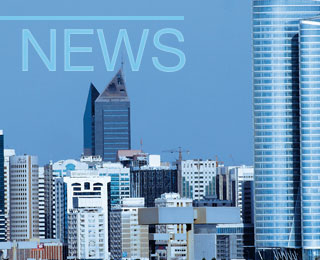The Vicat Group has reported consolidated sales of EUR1937m in the first half of 2024, up from EUR1912m in the same period a year earlier. Over the same time frame, EBITDA advanced from EUR314m to EUR353m, while consolidated net income improved from EUR109m to EUR115m. According to the company, the growth has been primarily driven by market dynamics in the USA.
Over the 1H24, the company saw a one per cent uptick in cement volumes to 14.1Mt with trends varying across the markets. A slowdown in European markets was noted, especially in the residential sector. Meanwhile, in the US, growth was driven by the industrial and commercial ramp-up of the company’s Ragland plant along with a volume rebound in California. A “dynamic performance in emerging markets” was also reported with increases seen in India, Kazakhstan and the Mediterranean region.
The increase in EBITDA was attributed to higher volumes at the Ragland works, an improved industrial performance, and a favourable cost-price differential. The six-month period also saw an improved performance by the company’s cement business and a greater use of alternatives fuels.
In France, consolidated sales in the 1H24 came in at EUR594m, down 5.8 per cent YoY, due to weak volumes in the residential market and the general slowdown in the economy. Even though cement price hikes introduced in the 1Q24 did have a positive impact, cement sales fell 7.8 per cent in the 1H and EBITDA declined 6.4 per cent.
In Europe (excluding France), business picked up slightly in the 1H24, driven by the appreciation in the Swiss franc against the euro. In Switzerland sales advanced 2.7 per cent at constant scope and exchange rates, but cement sales were down two per cent due to a weak residential market. In Italy, operational sales were down 1.3 per cent at constant scope amid a slight downturn in volumes and a hike in average selling prices.
Vicat’s sales in the Americas rose significantly in the 1H24 due to volume growth and favourable pricing. Cement operational sales were up 18.6 per cent YoY at constant scope and exchange rates, while EBITDA improved 46 per cent, reflecting a substantial improvement in cash costs as fossil fuel prices fell and the Ragland plant switched to greater use of alternative fuels. Brazil, however, saw cement volumes and prices decline in the opening six months of the year.
In Asia, Vicat operates in India and Kazakhstan, with consolidated sales for the region seeing a four per cent improvement YoY to EUR242m in the 1H24. According to the company, operating profitability recovered sharply thanks to a solid performance by India where volumes rose on the back of strong demand. Meanwhile, in Kazakhstan, an expansion was seen in the 1H24 despite the slower pace of growth in the domestic market.
The Mediterranean market (Turkey and Egypt) reported a 39.1 per cent YoY increase in consolidated sales in the 1H24 to EUR214m at constant scope and exchange rates. In Egypt, sluggish domestic market conditions and declining volumes were more than offset by growth in cement and clinker exports. Turkey also saw volumes fall, due to Ramadan in April and Eid in June, but selling prices were raised significantly in the 1H helping to offset higher production costs.
Vicat’s activity levels in Africa were hit over the six-month period by power cuts in Mali and a contraction in business in Senegal. In the latter, cement production is expected to remain under pressure until the new kiln enters into service at the end of 2024. Meanwhile, in Mauritania, cement operational sales were up 4.6 per cent YoY at constant scope and exchange rates on the back of volume growth.
Capex over the 1H24 stood at EUR186m, up from EUR143m in the 1H23. The new kiln in Senegal accounted for a significant proportion of this. In terms of sustainability, the group reported an alternative fuel rate of 36.5 per cent in the 1H24, up from 32 per cent in the same period a year earlier. Direct specific emissions fell 2.2 per cent YoY, while the clinker rate declined from 76.8 to 76.4 per cent.
Vicat says it expects to see an increase in EBITDA in 2024 of between 3-8 per cent, supported by an improved performance in the USA and the resilience of its emerging markets.
